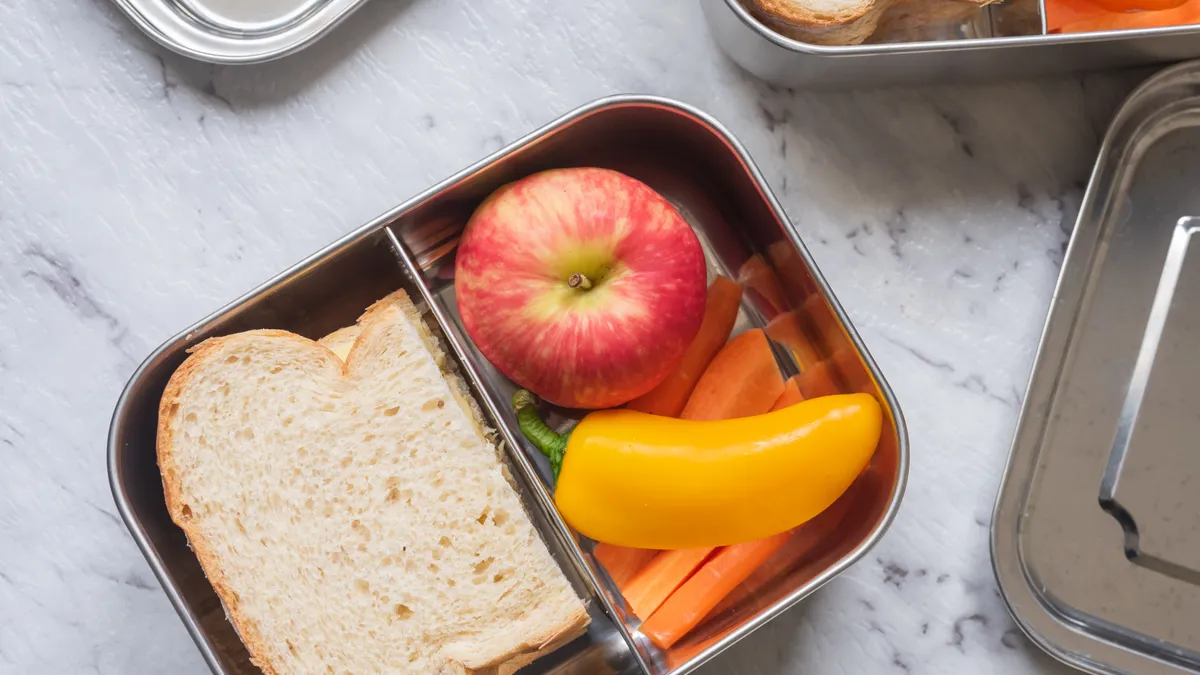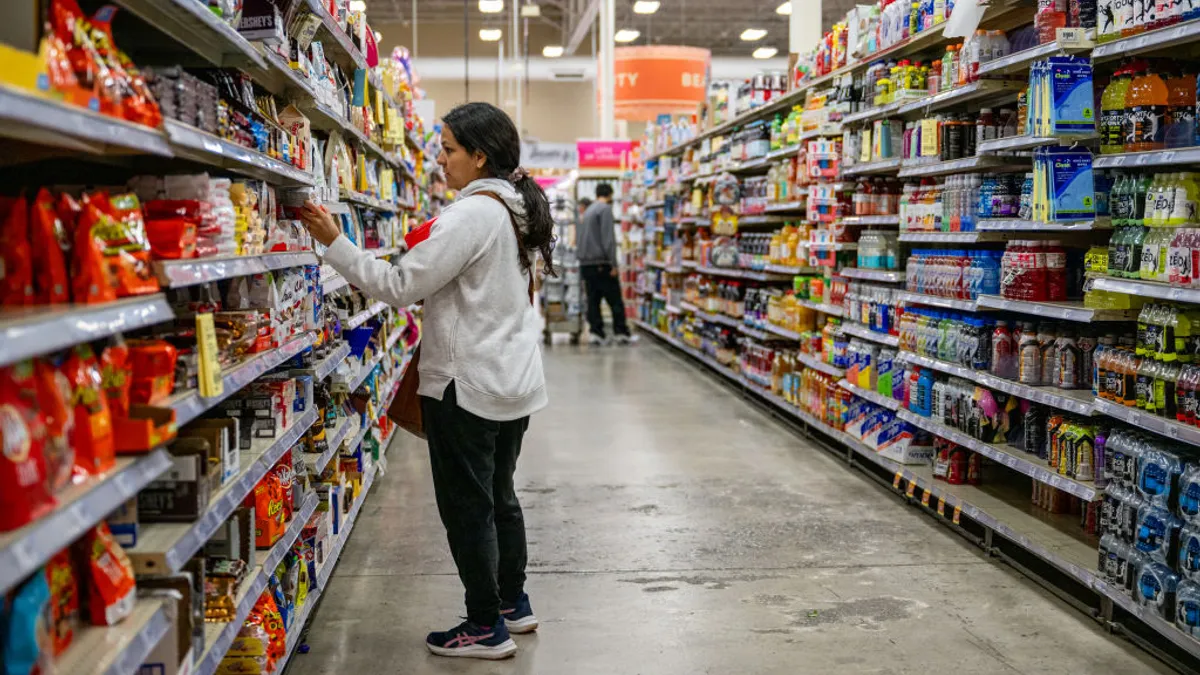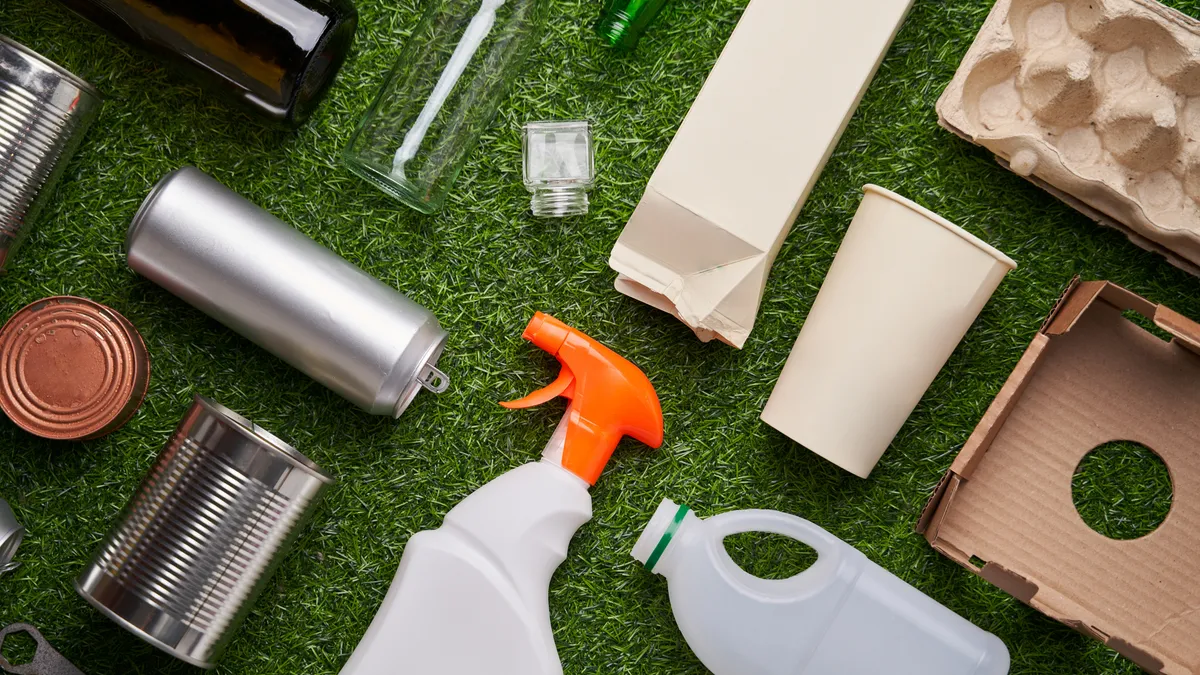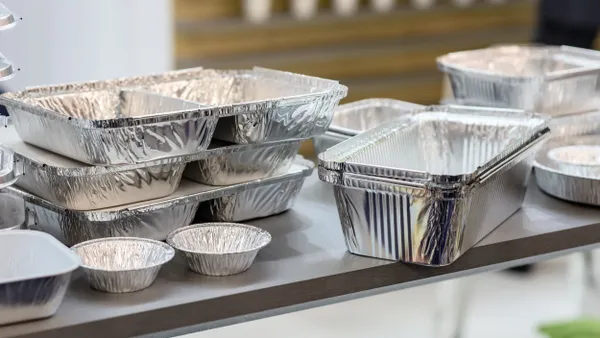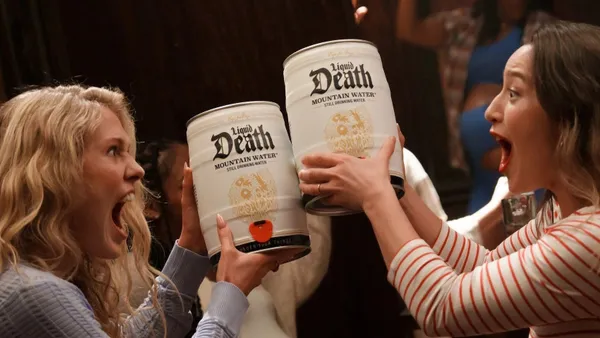Dive Brief:
- GreenScreen, a collection of chemical safety certifications for different product categories, now has a certification program for reusable food packaging and food service ware containers.
- The assessment looks at exposure to toxic chemicals such as PFAS, bisphenol A (BPA) and phthalates. The standard also requires testing to ensure recycled materials in those products don’t contain known hazardous chemicals.
- The Center for Environmental Health and Clean Production Action, the organizations behind the program, are hoping to reach packaging makers and reusable container purchasers alike to promote safer products as momentum for reuse programs ticks up.
Dive Insight:
Today, most reusable food container programs with restaurants or other venues lack significant scale but are poised for growth. Containers may be made from plastics, stainless steel, glass, ceramics or other materials. CEH and CPA want to encourage the adoption of reusables to rein in plastic pollution, but don’t want to repeat potential health risks associated with some single-use wares. Federal and state review and regulation of per- and polyfluoroalkyl substances, BPA, phthalates and other chemicals in food packaging vary and are ongoing.
“When people look at transitioning from single-use to reusable, there's a lot of focus on plastics because they're the cheapest option” compared to a lot of the other alternatives, said Shari Franjevic, senior program manager for GreenScreen at Clean Production Action. “One of the things that we're really trying to do with this standard is to put a really high bar in the areas of toxicity so that that doesn't just naturally happen without these really important things being addressed, if you're going to be using this product over and over and over again.”
Those cost concerns are particularly relevant as businesses that adopt reuse schemes, which are not yet a cultural norm, worry they may not always get their containers back, said Sue Chiang, director of the food program at the Center for Environmental Health.
The new GreenScreen Certified Standard for Reusable Food Packaging, Food Service Ware, & Cookware can assess both an end product and the chemicals that go into it, offering tiered silver, gold and platinum certification levels. Companies that go through the process are required to confidentially disclose their full ingredient information. Products are tested for “chemicals of concern” and must comply with a list of prohibited substances. The program was developed in consultation with product makers, purchasers and experts from nonprofit and industry groups, and piloted by a group of manufacturers.
GreenScreen certification programs already exist for numerous other product categories, including textile chemicals, firefighting foam and furniture and fabrics. Single-use food service ware is also an area where GreenScreen has been targeting PFAS for years.
Due to the voluntary nature of the certification, the speed of industry uptake of these standards can vary greatly, Franjevic said, with regulatory actions and marketing pressure proving to be significant factors. Chiang said that in the case of the new reusables certification, government purchasers could play an important role, as could entities like hospitals that are already committed to public health.
Ultimately, one of the biggest challenges for the organizations remains illustrating the risks of toxic chemicals. “It's much easier to talk about waste and the concerns about plastic — it's very in your face and visual,” Chiang said. “It's much harder to see or to even be able to directly tie in any health effects and results.”



